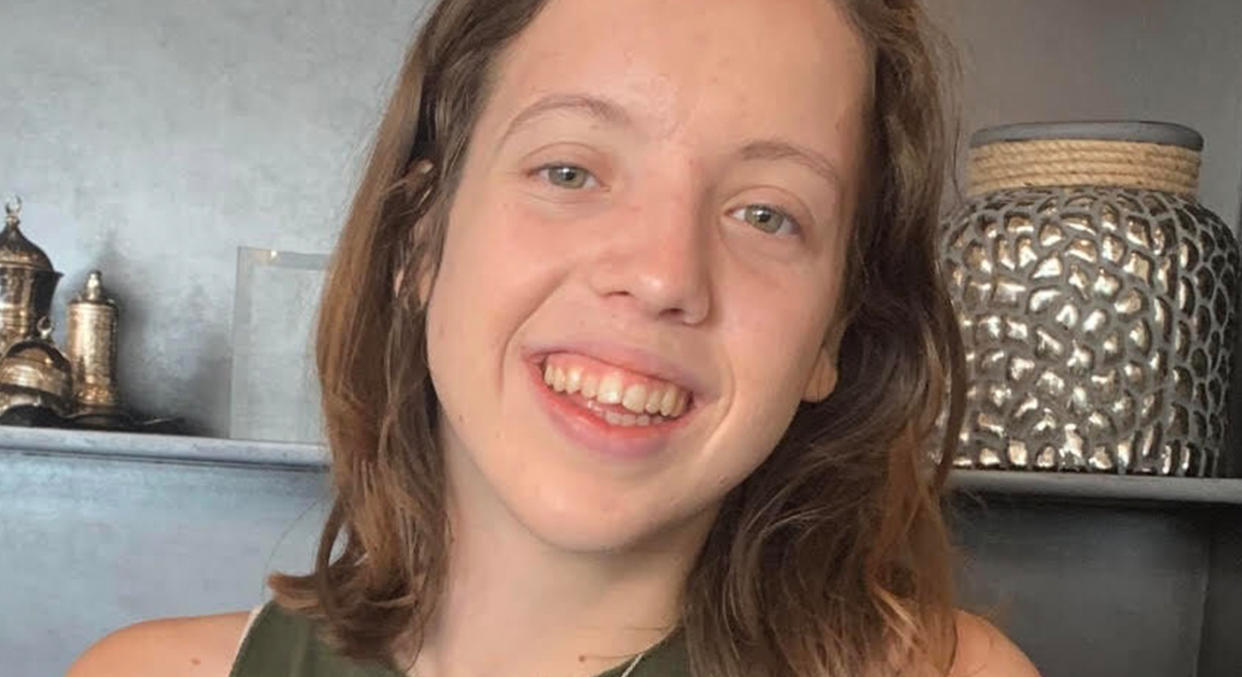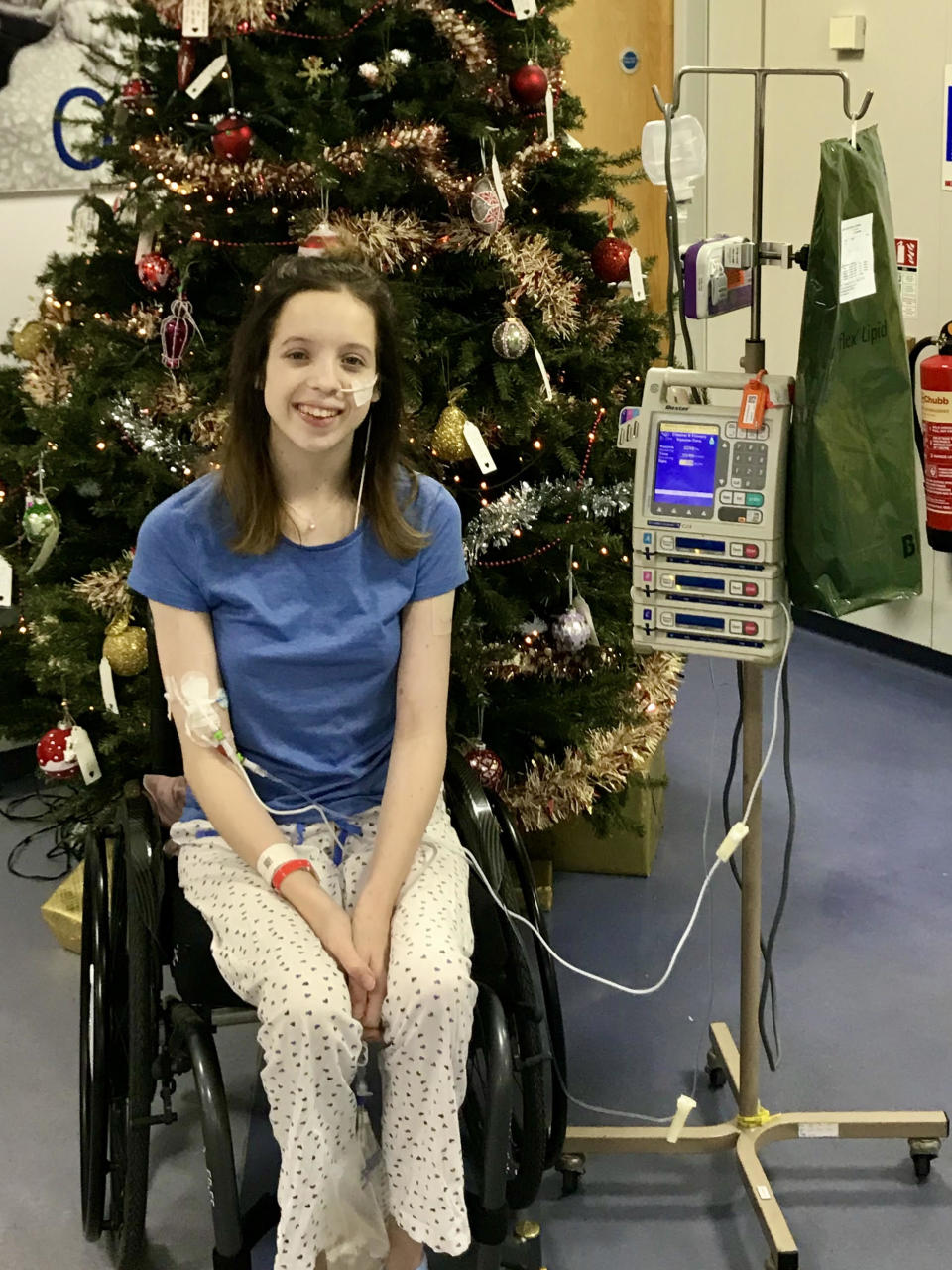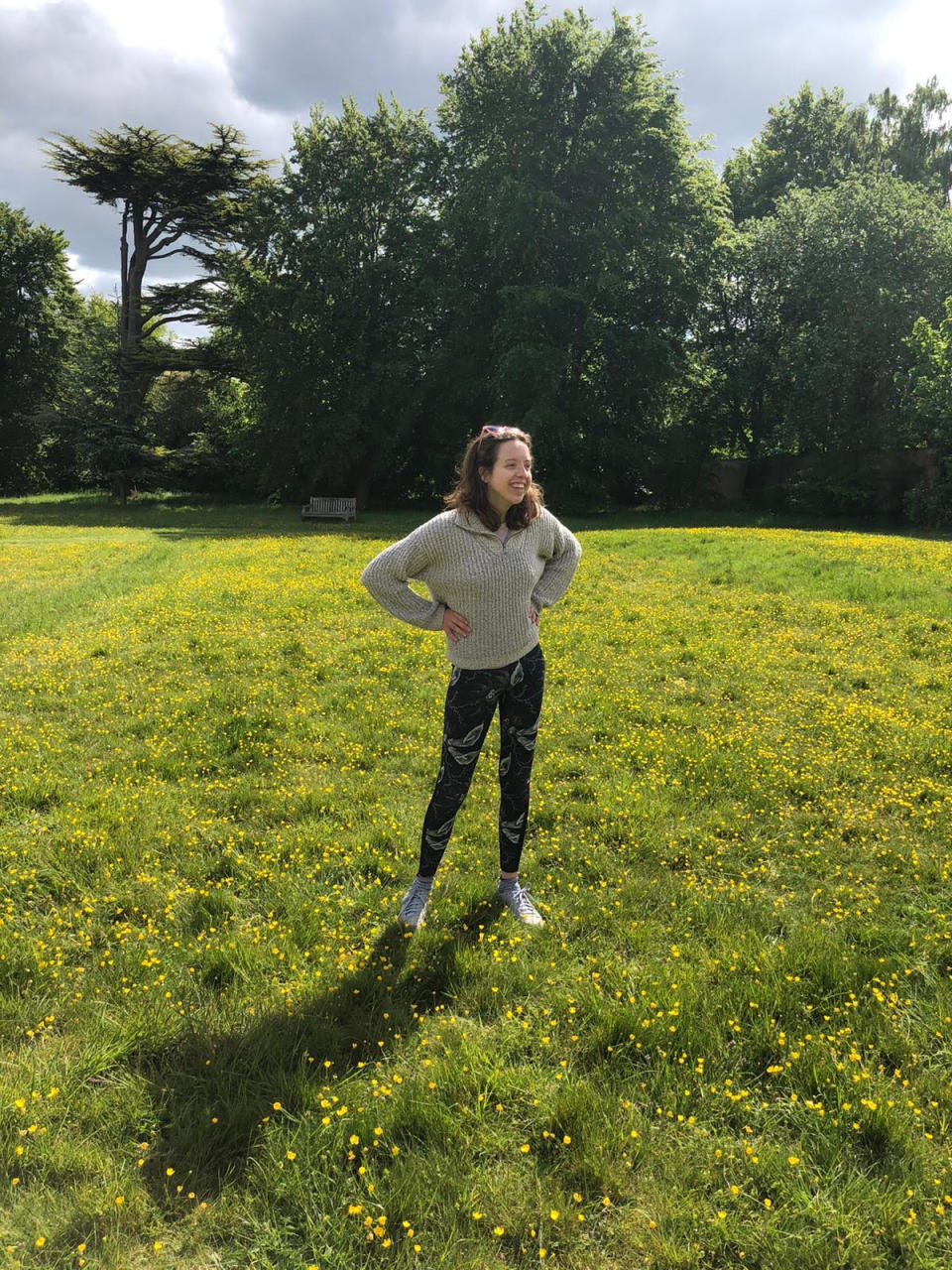Wheelchair-bound student left ‘zombified’ by painkillers ‘has a body that functions’ thanks to medical cannabis

A student who spent four years wheelchair bound has credited medical cannabis for enabling her to walk again.
Lucy Stafford, from Cambridge, was diagnosed with Ehlers Danlos syndrome (EDS) – which affects connective tissue – when she was 16 years’ old after suffering its agonising symptoms since she was 10.
By the time she was 20, Stafford had endured numerous joint dislocations that forced her to endure various surgical operations including on her spine, hip and bladder.
Unsure how best to manage her symptoms, doctors prescribed opiates (drugs created from opium) when she was just 13, which left Stafford feeling “zombified”.
Read more: Nice recommends two cannabis-based drugs for epilepsy and MS
It was not until she dislocated her jaw aged 18 that a pain specialist suggested medical cannabis, which the NHS would not cover at the time.
Stafford took it upon herself to get a “dose” in Amsterdam, with the drug easing her discomfort “for the first time in her life”.
Although medicinal cannabis was legalised in November 2018, a private prescription set Stafford back £2,000 ($2,619) a month.
After enrolling on a clinical trial into the treatment in June 2020, Stafford says her body finally “functions”.

Stafford first endured “horrendous” pain when she was 10. By affecting a patient’s connective tissue, EDS often leads to loose, unstable joints that dislocate easily, as well as prolapse and incontinence.
Unsure what was wrong at the time, Stafford was prescribed opiates when she slipped several discs in her back aged 13.
“The doctors had no real other option but to prescribe opiates,” she told Yahoo UK. “I was crying myself to sleep at night as I was in so much pain.”
Read more: Marijuana-filled balloon pulled from an ex-offender's nose
Stafford gradually became dependent on the painkillers, requiring a stronger and stronger dose to ease her discomfort.
“I had horrendous withdrawal effects when it tapered off,” she said.
“I had horrendous anxiety, I wouldn’t sleep, I would sweat.
“I never took more than I was prescribed, but taking them every day, your brain does become dependent on them.”
Things took a turn for the worse when Stafford dislocated her jaw.
Read more: Mother overcame a 25 year addiction to prescription painkillers
“None of my doctors had any idea what we could do to improve my quality of life at that stage,” she said. “It was really dire.
“My pain specialist tried to prescribe a cannabis-based medicine on the NHS that was denied immediately.
“It was just around the law change.”
On 1 November 2018, the UK government announced it would “reschedule certain cannabis-based products for medicinal use”.
Despite the law change, patient access was said to be poor. By February 2019, “not one patient had benefited from a cannabis prescription on the NHS”, a professor wrote in The BMJ.

That November, Stafford travelled to Amsterdam, where she smoked cannabis.
“It worked,” she said. “For the first time in my life my medication reduced my spasms, gave me an appetite and helped me sleep a night. I had energy, I could think clearly, I could concentrate.”
In March 2019 Stafford paid for a private prescription in the UK, but knew the cost was “totally unsustainable”.
Since enrolling on the clinical trial Project 21, she has had a “consistent supply”, allowing her to come off her prescription painkillers.
“I was in a wheelchair; I couldn’t walk for four years,” said Stafford – who studies science, technology, engineering and maths at The Open University.
“For months I couldn’t lift my head off the bed. Now I walk a few kilometres every day.”
Stafford – who hopes to one day work in pharmacology – admits the treatment is “not a miracle cure”, but it eases her symptoms enough to do the physiotherapy and physical rehabilitation to build up her strength.
“On opiates I was too zombified,” she said.
Stafford’s drug regimen involves her administering two types of cannabis oil drops beneath her tongue three times a day. She also has a cannabis flower she can vaporise when she needs instant relief.
“I’m functional now,” she said. “I used to do one thing and take days and days to recover.
“[Now] I get up and go for a walk, I study, I see friends in the evening.
“I still have a disability, but I wake feeling refreshed and sleep well.
“My body functions. I live a way more normal life than I ever would have imagined.”
Project 21 aims to monitor the health outcomes of 20,000 patients on cannabis-based medicinal products to determine their safety and efficacy.
The participants have everything from chronic pain and anxiety to multiple sclerosis and Tourette’s. The team behind the trial hope its results will “provide evidence for NHS funding”.
With the trial ending in 2022, Stafford worries she will be “stuck again” if the health service does not prescribe medical cannabis more readily.
The UK government has been accused of being slow to recognise cannabis’ medical benefits.
Uruguay became the first country to legalise the drug for recreational use in 2012.
That same year, Washington State and Colorado voted in support of cannabis for non-medical use. It is legal for medical reasons in 33 of the 50 states.
Lesotho was the first African country to legalise the cultivation of cannabis for medicinal purposes, while Spain and South Africa allow it to be used recreationally in private places.
Although the sale of cannabis remains illegal in Brazil, Jamaica and Portugal, possessing a small amount of the drug is no longer a criminal act.
Under Dutch law, cannabis can be sold over the counter in licensed coffee shops, but it is illegal to produce or supply the drug.



